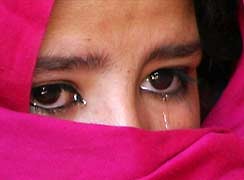
The situation in Afghanistan has posed quite a challenge for the Obama administration despite nearly a decade of US intervention in the region. Since the 2001 invasion, the US has lost over 1,000 service men and women in Afghanistan. Though estimates differ on the total number of Afghan causalities lost since the start of the war, according to the United Nations’ Annual Report on Protection of Civilians in Armed Conflict, 2009 proved to be an especially deadly year as “at least 5,978 civilians were killed and injured in 2009, the highest number of civilian casualties recorded since the fall of the Taliban regime in 2001.” Most deaths were a direct result of Taliban activities in the region. Terrorism, women and human rights abuses, the opium trade, and economic woes top the list of problems plaguing Afghanistan, but policy makers have skimmed over a glaring issue facing Afghanistan: the lack of government legitimacy among the population has left Afghans without a voice, and in some districts, even sparked sympathy for the Taliban.
Several indicators point toward rampant disdain and distrust of the government by the Afghan people. The Washington Post reported that “In an assessment of 121 Afghan districts that it considers crucial to winning the war, the U.S. military found that only about one-quarter -- or 29 districts -- could be classified as sympathetic to the government.” More alarming, 48 districts were categorized as tolerant or sympathetic toward the Taliban. Some of this may be traced back to the reelection of President Karzai in 2009, which was both marred by fraud accusations and heavily contested by his opponent, Abdullah Abdullah.
Government legitimacy, however, is more than transparent elections; it is about the ability to produce results and provide security and social services without corruption. The US military’s study found that most Afghans believe that governmental corruption affects their daily lives. This is not surprising as a 2006 survey (PDF) conducted by Integrity Watch Afghanistan found that half of public services were believed to be the result of bribes. The government cannot sustain a sense of legitimacy among the people when it is tarnished by corruption and incompetence.
Afghan women are particularly impacted by the empty lip service paid to them by their government. For instance, while the government allots seats in both houses of Parliament for women, female politicians are often targeted in militant attacks. Less than two months ago a female Provincial Council member survived an assassination attempt after being targeted in a drive-by shooting. An Afghan Parliament member was also shot just a month before. The government has failed to give women a voice in Afghanistan by not providing adequate security against militants who want to extinguish their influence in the government.
When corruption trumps justice and government inaction or incompetence leads to loss of life or other destruction, it becomes obvious why Afghans do not overwhelmingly hold positive views of their government. Political legitimacy will only come when Afghans feel that the government represents them. In the meantime, the international community must do more to ensure that Afghanistan’s policies are representative of the Afghan people.
The US should continue to put pressure on the Karzai regime to stamp out bureaucratic corruption. Unconditional support for a leader entrenched in endless corruption scandals will only discredit the US in its efforts to rebuild Afghanistan, while increasing the risk of losing Afghan trust to the Taliban or other groups. NGOs should continue to serve as watchdogs during future elections and give Afghans confidence in their voting system. More importantly, both the US and NGOs should assist in building Afghanistan through social and humanitarian efforts aimed at strengthening institutions (such as healthcare and education). Much of these efforts should be targeted specifically at empowering women. As the world watches the developments unfold in Afghanistan, we should remain reminded that this is not just a war zone, but rather a state and nation building operation.
Image Source: flickr

No comments:
Post a Comment